- Administrator
- Albums and Singles
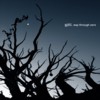 Dedicated to “individuals who burn the flags of nations,” Gjöll’s debut is a concept album in five parts about a character’s anger arising from the state of today’s materialist society, blaming its oppressive politicians and advertisers alike. Dark and brooding, the album is heavy on atmosphere that’s perforated by bleak lyrics.
Dedicated to “individuals who burn the flags of nations,” Gjöll’s debut is a concept album in five parts about a character’s anger arising from the state of today’s materialist society, blaming its oppressive politicians and advertisers alike. Dark and brooding, the album is heavy on atmosphere that’s perforated by bleak lyrics.
“Part I” is a deep drone surrounded by a few rhythmic elements and an occasional high-pitched tone while appropriately despondent lyrics are spoken in the group’s native Icelandic, some of which roughly translate as “Will my voice be worth anything/When there is nowhere an abyss to be seen?” Except for a change at the end, the music is relatively static and made me anxious for something to happen.
Something does happen in “Part II,” which introduces a heavy beat that bounces between channels throughout the track as the character’s anger builds into scratchy vocals delivered like paranoid propaganda. It’s an enjoyable rhythm with unique timbre, although occasional alterations to the beat would have extended its vitality. A swirling maelstrom erupts on “Part III” as the anger transforms into bitter rage. The vocals are buried under harsh distortion, now and then puncturing the dark clouds as the tornado swells and rumbles, culminating in an effectively grueling howl. “Part IV” isn’t as loud, but it’s just as creepy. A low drone swims in the background under cascading high frequencies while the narrator whispers his revelations from an inner spiritual journey in a chilling manner, aided in part by the low volume of his voice and the deliberateness of his enunciation. “Part V” is a somewhat schizophrenic instrumental, running with the storm of “Part III” for over ten minutes before ceding to a magical, starry nightscape that erases much of the negativity that precedes it.
In accordance with the theme, the group includes a lot of rune imagery in the accompanying booklet but insist that it’s only a reminder that creations in the digital age are temporary when compared to those from previous ages, and not as some romantic notion of life in Viking times. Although it gets off to a sluggish start and some songs suffer from a lack of dynamics, this album still has a lot of powerful dark energy worth many repeated listens.
samples:
Read More
- Administrator
- Albums and Singles
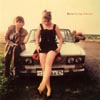 Zach Condon has been hailed as a genius and practically drooled upon since Gulag Orkestar was released. He deserves it in part, any 19 year old musician with this kind of talent deserves to be recognized for his achievements. With A Hawk and a Hacksaw in tow, Condon has written one of the most attractive, if flawed, pop records of 2006.
Zach Condon has been hailed as a genius and practically drooled upon since Gulag Orkestar was released. He deserves it in part, any 19 year old musician with this kind of talent deserves to be recognized for his achievements. With A Hawk and a Hacksaw in tow, Condon has written one of the most attractive, if flawed, pop records of 2006.
Ba Da Bing!
I know this is eastern European music wrapped up inside a western mind, but this is a pop record of the most elegant and subtle kind. It's alluring because its roots are Balkan. It is inviting because Condon, along with Jeremy Barnes and Heather Trost, write and perform beautiful songs filled with romantic and energetic particles. It is somewhat familiar because Condon, at times, wears his Stephin Merritt badge on his sleeve, conjuring up happy sentiments of The Magnetic Fields while crooning in a low, surprisingly full voice. If there is any doubt about any of this, just look at the songs everyone is talking about. "Postcards from Italy" is probably one of the most downloaded songs from the album and I've seen the Fields-ish "Scenic World" mentioned all across the internet. Condon has definitely struck a chord with a lot of people, but this is also clearly the work of a 19 year old male who's as stunned by this world full of music. Just as stunned, I imagine, as many are by his efforts in bringing the world of music to us.
Some songs, such as the impressive and militaristic "Bratislava" seem overdone, made to be foreign by effort instead of by happy chance or familiarity. It's a nice enough song on its own, but when stacked against the stunning "Mount Wroclai (Idle Days)" and Condon's superlative vocal performance on that song it sounds like it belongs in a circus more so than on this album. Also, the songs where Condon attempts to tune down the exotic characteristics of his music ("Scenic World" and "After the Curtain") sound out of place next to the grandeur of the trumpets, marches, and stomps that are the immediate attractions of Gulag Orkestar. Perhaps other bands have succeeded in melding Western pop music with all the heat and passion that's so obvious in the music of gypsies and mysterious cultures, but Condon hasn't quite developed a knack for it, yet.
That will not keep me from wondering at this odd little album, though. The sultry, celebratory tone Gulag Orkestar has on a whole is smile inducing, worthy of dances and cartoonish facial expressions. The music is romantic and sexy and very wondrous in general, like a child seeing the world for the first time and falling in love with all of it.
Indeed, much of the album sparkles with an innocent charm. Condon's lyrical prowess may not be akin to a great poet's, but his passion for the music is undeniable. The way he utilizes his voice is spectacular and worth buying the album for. This isn't a perfect album and it isn't as groundbreaking as some would have you think, but it is a very good album that stands out among so many other evidently excellent releases this year. Condon should be applauded for being so daring and so goddamned talented. Anyone capable of taking ethnic music and handling it so deftly should be recognized simply because most people who try it end up spoiling their music and insulting the ethnic music they were so fond of to begin with.
samples:
Read More
- Administrator
- Albums and Singles
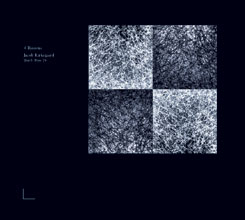 A man of extremes, Kirkegaard’s last Touch record was noisescapes recorded in the Earth’s crust. Four Rooms is a record of silent feedback, silence played back into more silence, in four rooms in Chernobyl, Ukraine.
A man of extremes, Kirkegaard’s last Touch record was noisescapes recorded in the Earth’s crust. Four Rooms is a record of silent feedback, silence played back into more silence, in four rooms in Chernobyl, Ukraine.
Radiant silence would be a better description, and Kirkegaard uses the city’s past to explode his paradox by choosing rooms of defined public space: church, auditorium, swimming pool, gymnasium. Rooms rarely silent in their previous life and deathly silent today are given second stories, necessarily suggestive of the noise and chaos of their tragedy but themselves eerily hopeful impossibilities.
Kirkegaard's method will immediately recall Lucier’s I Am Sitting In A Room, though now with the sound of empty space replacing the human-voice within-space. Lucier’s fusion of human presence with spatial sound dynamics—a process that subtracts the tonal uncommonalities—contrasts Kirkegaard’s additive method in which recordings of the empty rooms are layered sometimes 10-high upon each other, equaling squirmy, resonant pools of all-over ambient noise-throb. Whereas Lucier’s work ends in a shimmering dissolve, a Zen conclusion (the artist never endorsed) on both the power and ultimate dependence of human consciousness/presence, Four Rooms takes the ghostly memory of presence and exploits it in a meditation on what history leaves behind or what is always there: the before and after.
At face value the four tracks are extremely effective, immersive ambient pieces, at once calming and sleepy and shrill with the buried howl and throb of frequency pile-up. Album art translates the lacey threads and cold currents that wind and curl over the constant, in-the-red groan of a silence room bursting with itself. To call the music desolate or space-like (how could you resist) is accurate, but knowledge of its genesis makes its experience a confined, earthen thing, creepy given the spaces, but comforting and womblike almost by fact of its existence. On his website, Kirkegaard has incredible pictures of the specific rooms, from the “Zone of Alienation,” looking completely alien, untouched for 20 years, holding back some awesome silence.
samples:
Read More
- Scott Mckeating
- Albums and Singles
This brief split cassette release should’ve yet been another step on Robedoor’s ascent to greatness. And it might’ve been too if it hadn’t been for the pesky well-built post-rock sludge of the flipside.
Robedoor push forward the scrappy “Draining Day” offering with a slow siren of human wheeze hum, normally in their hands this sort of sound would end expanding to swallow acres of brain space. Over the first couple of minutes it kind of finds a niche, but as it lengthens out it just stops delivering; it swamps itself far too early in the race. Robedoor’s attempt at corrugating this rush with the sounds of heavy objects ripping through the air doesn’t help matters. It ends up sounding like a miss-matched mess. The blasts of fog that were designed to force incoming passenger ships into the rocks, sound more like tea lights being blown out. The cassette ends up being a harsh match for Robedoor, Goliath Bird Eater just keeps hitting home.
Beginning with audio from a tank’s vertical lift off the track is soon pinned to the floor with a huge distorto bass line. The slight handed chime of guitar builds slowly in volume, eventually coming to rest on a gorgeous Mogwai lull. The riding out of this almost lo-fi serenity would be enough, but it’s soon pulverized by a huge gut contraction style riff. The bass kicks in and the pace alongside the menace increases, sending the song lurching to an energetic end.
Read More
- Administrator
- Albums and Singles
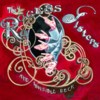 Even though this second album from the trio of Jennifer and Laura Rogers and bassist Miyuki Furtado doesn’t cover a lot of new territory, they still manage to get a lot of mileage out of their material with an album of energetic, anthemic rock songs.
Even though this second album from the trio of Jennifer and Laura Rogers and bassist Miyuki Furtado doesn’t cover a lot of new territory, they still manage to get a lot of mileage out of their material with an album of energetic, anthemic rock songs.
The opener, “Why Won’t You,” is a little misleading. Its structure is fairly standard, with plenty of build and little payoff. Following is “Never Learn to Cry,” which is more of the same until the band runs it out with an unexpectedly fiery finish. From here their enthusiasm becomes contagious, careening into “The Light” as the band tightens their songwriting into a blistering rocker about false saviors. Propelled by a sultry bassline, they slow the pace convincingly with “Your Littlest World,” a song that implores its subject to engage with the world rather than remain anti-socially passive. All three band members sing, and their harmonies on “Money Matters” work particularly well on this song that decries materialism and living beyond one’s means, even going so far as to suggest that “Living like adults is the new rebellion.”
“The Clock” is a countdown to an unspecified disaster, one that could be read as political, environmental, or both, considering the convictions they share elsewhere on the album. Even though the lyrical conceit wears out fairly quickly on this one, Jennifer Rogers proves herself to be an exceptional guitarist through her use of interesting texture, aided by the changes in the drum recording that burst through when a lull appears imminent. The only other misstep besides the opener is the closing “Sooner or Later,” which is fine in itself but goes on much longer than needed to be effective.
Despite the socio-political leanings that leak through in their lyrics, the band never comes across as self-righteous or confrontational. That they choose to sing about things that matter to them is refreshing, especially when paired with music this engaging.
samples:
Read More
- Administrator
- Albums and Singles
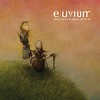 Evocations of past albums litter this new EP. Plangent piano sonatas filled one album, alchemic wisps of water in air another, and submarine drones a third. When I Live by the Garden is not simply an omnibus compilation of past works, but rather a recombination of efforts showing how past works were not simply stand-alone products but all part of a larger concept.
Evocations of past albums litter this new EP. Plangent piano sonatas filled one album, alchemic wisps of water in air another, and submarine drones a third. When I Live by the Garden is not simply an omnibus compilation of past works, but rather a recombination of efforts showing how past works were not simply stand-alone products but all part of a larger concept.
These songs don’t feel so much like a sampler as they do a synthesis.“I Will Not Forget That I Have Forgotten” recalls 2004’s An Accidental Memory in the Case of Death because of its somber keyboard theme, but it is more complexly layered with swells of controlled, fuzzy drones and frequency manipulations. The piano sounds cut through the atmosphere of static and demand to be the central conceit, but there is much more going on. Those who have seen Eluvium play live, will be reminded of what Cooper’s performances sound like. When encountered with the sonic interplay of drones versus keyboard, I tend to pay more attention to the keyboard part. It is usually more accessible, easier to hang on to and understand. But with this song, I notice that I am more enraptured by the drone and static. The melancholy of the piano drops down and instead my attention goes to the limitless possibility of everything surrounding the keyboard. Only then does the song begin to feel dynamic.
“As I Drift Off” has an effect antagonistic to its title. It begins with a monologue sample which is clearly Tom Hanks but if you drift off too much, you’ll noticeably have a difficult time placing it as a sample from The ‘Burbs. It took me three listens of very alert, non-drowsy manipulation of both the song and my filmic memory. Instead of having a narcotic effect, the sample simply conjures the confused faces of Bruce Dern and the erstwhile Rick Ducomumm (the supporting actor’s supporting actor) and the humor of cannibalism. It takes the actual song to begin the drift and when Cooper’s narcosis has you in its grips, there is no release until the end of the album. “As I Drift Off” could be an outtake from 2003’s Lambent Material. The tell-tale mark is the crescendo feedback, much harsher than sounds from later albums. The harshness is not abrasive, but it does pack a punch and gives the feeling that only an inflated diaphragm con contain. In contrast, “All the Sails” has a more ethereal grain and shares all the attributes of something from 2005’s Talk Amongst the Trees. The disparity between the two songs is invigorating and describes well the energy which courses through all of Cooper’s work.
Although I (and others) might use words associated with sleep when discussing Eluvium, there is nothing lazy, boring, or enervated about this music. Rather, it is electric. The eponymous last song is a measured and disciplined approach to Cooper’s envisioned oceanside plot. We have wandered through the garden already and now we stand on the shore, staring out as sounds modulate up and down, chimes enter and depart, and the wine-dark sea ripples in synchronicity with the music. All the airiness, the muted aquatic rumblings, and the stark ivory (well, plastic, I suppose) depressions are gone. What is left is the synthetic future-sound of what lies ahead.
samples:
Read More
- Administrator
- Albums and Singles
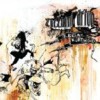 Frequent collaborators Tom de Geeter, aka Siaz, and Marcus Graap team up again for their first album as Zucchini Drive. Assisted by a different producer on every track and a revolving door of musicians, this smorgasbord of talent concocts hip hop cuisine that’s uniformly good but rarely excellent.
Frequent collaborators Tom de Geeter, aka Siaz, and Marcus Graap team up again for their first album as Zucchini Drive. Assisted by a different producer on every track and a revolving door of musicians, this smorgasbord of talent concocts hip hop cuisine that’s uniformly good but rarely excellent.
Having so many cooks in the kitchen takes its toll on this disc since the guests often leave a bigger impression than do Siaz and Graap, who struggle to arrive at a distinctive style. The disc comes across as more of a singles collection than a flowing album because of the sheer variety of ideas vying for attention. Making things even more problematic is that the lyrics and delivery are standard fare, displaying little of the linguistic virtuosity that gives hip hop its power.
The melancholic postrock of Giardini di Miro is all over “Painting Things in Harsh Colours,” yet here Siaz and Graap are at their most deliberate. Although approached differently, the same mood bleeds into “Sombre City,” aided by the vocals and guitar of Markus Acher from The Notwist. The album comes alive with “Easy Tiger,” but guest emcee Bleubird clearly steals the show with his confident skills. Things go better for the duo when the supporting music is pared down like on “Knucklesandwich” and “Vagabondage,” bringing them to the fore and giving them more room to work. “1000 Streets Beneath the Sky,” by contrast, has nice musical passages but they shift so frequently that they ultimately distract from the vocals. “Earth to Kurtwood” might be the album’s best track because it finds a good balance between engaging music and effective vocals. They get close on “Banned From Poland,” but the strong electronic presence that B. Fleischmann brings is somewhat incongruous among the other tracks. “Bonafied Gambler” is decent but unfortunately it’s spoiled by the many raucous “Yeah!”s and “Come on!”s in the background. “Good Music & Indian Food” is a wistful bookend to the opener, though it’s not enough to overcome the feeling that the album is all over the place yet doesn’t go anywhere.
samples:
Read More
- Administrator
- Albums and Singles
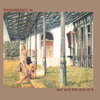 I expected more from an album that not only advertises sexuality, but also has referential song titles like "Tubular Belles" and "Moi Non Plus." Netherlands-based Trespassers W talk a lot about sex, use plenty of risque language to describe sex toys and sexual acts alike, but none of it sounds very arousing.
I expected more from an album that not only advertises sexuality, but also has referential song titles like "Tubular Belles" and "Moi Non Plus." Netherlands-based Trespassers W talk a lot about sex, use plenty of risque language to describe sex toys and sexual acts alike, but none of it sounds very arousing.
Somnimage
Trespassers W immediately brought to mind Piglet and that little broken sign he had outside of his home. "Trespasser W," as though it could've once warned unwelcome guests about the presence of a 12 gauge shotgun on the premises. So, taking that as a warning about the band itself, I expected the band to be especially dangerous sounding. No need to be heavy or grotesque, but with a topic like sex I'm always happy when someone approaches it with a fresh, typically un-American view (sex and death, sex and power, sex and deity, sensuality and pain). There are no lyrics available anywhere for this album, however, and often the vocalist's voice is hard to decipher behind the rapidly changing instrumentation, so what I do hear from him are words like "pussy" or the mention of objects like "hand cuffs" and "nipple brushes." Whatever the end of sex is, this album doesn't make it easy to find out what the band's opinion on the matter is.
Musically, Trespassers W jump all over the place without much warning and seemingly without reason. The album begins with pseudo-chamber music and a small narrative, but quickly jumps into an American influenced country-rock song. It sounds like a stiff replication rather than the result of an appreciation for the genre and its roots. Later there are light noise pieces assembled from the usual junk drawer of sources, standard pop tunes, and oddball arrangements that don't warrant a comparison to anything else. If all the music on the record were as consistent as those cut up songs and semi-noise pieces then Sex and the End of It would be worth hearing from beginning to end. On an album that is 16 tracks long there is simply too much filler material; well over half of the disc could be done away with and I'm not sure anyone would miss it.
samples:
Read More
- Administrator
- Albums and Singles
Read More
- Administrator
- Albums and Singles
 Flowing Seasons is the solo debut from Luca Di Mira of Italy’s Giardini di Miro. At times orchestral, beat-driven, or ambient, the emphasis is on lush beauty, a quality these mellow songs rarely lack.
Flowing Seasons is the solo debut from Luca Di Mira of Italy’s Giardini di Miro. At times orchestral, beat-driven, or ambient, the emphasis is on lush beauty, a quality these mellow songs rarely lack.
Di Mira is an accomplished multi-instrumentalist, often finding a synthesis of electronic and acoustic instruments so perfectly blended that the differences between them are frequently difficult to discern. The arrangements are elaborate yet without any superfluous orchestration. Instead they proceed like languid currents that are always on the move and never stagnant. Although it’s true that a streak of melancholy runs through most if not all of the tracks, the effect is more usually wistful than depressing.
One thing Di Mira doesn’t do, however, is sing. Those duties are shared by three guests, all of whom are excellent singers capable of lending Di Mira’s songs the emotional vulnerability needed to remain convincing. Patrick Zimmer, who sings on two of the tracks, gets one of the album’s more notable lines on “Cut-Out-And-Keep Quarrels” when he sings, “I’ll take my credit cards/I’ll buy you a ghost.” This one, like most of the others, takes a while to unfold, but with rewarding results. A beat doesn’t surface until a few minutes into the song, but it embellishes the mood, extending the song’s effectiveness, as does the bass that enters a minute later. Other songs have a consistent approach, resulting in tracks like “Indecision” and “Mixologists and Waifs,” which are also both tender and thoughtful. “Tree Shadow” has the album’s only harsh elements, snippets of digital static that are used percussively, but they have a short leash and are thoroughly contained by the violin, piano, and classical guitar that surround them.
The album closes with the sweeping instrumental “With the Passing of the Seasons,” which finds Di Mira aided by four additional musicians on strings, clarinet, and drums, ending untidily with a few unexpected notes that are more of a question than a statement. Yet there’s no question that this is a marvelous debut that reveals more elegant layers with each listen.
samples:
Read More
- Administrator
- Albums and Singles
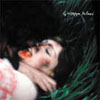 Ielasi’s eponymous second Häpna release doesn’t come as the refining or summarizing work one might expect from the prolific artist and collaborator. Despite being his most technologically demanding work yet, its compositions are more linear and inviting than ever before, and sonically the record is beautifully, meticulously meshed.
Ielasi’s eponymous second Häpna release doesn’t come as the refining or summarizing work one might expect from the prolific artist and collaborator. Despite being his most technologically demanding work yet, its compositions are more linear and inviting than ever before, and sonically the record is beautifully, meticulously meshed.
The record is certainly a change in direction and momentum if not overall mood. Despite all of the trickery and disconnect that I’ve loved in the man’s music thusfar, he’s made only mood music, never process music, however much process is on the sleeve. Dedicated fans may be turned off, though I was not. Giuseppe Ielasi is essentially an album of piled loops and the artist’s first grab at rhythm-based composition; process, in the broadest sense, is immediately apparent throughout. Nearly absent is the guitar that brought Ielasi up and stripped him down last year in the opaque skeletal blues/room tone suite Gesine.
Now comes a record of kitchen-sink-constructed analog delay homage to the Chain Reaction label, full of dubby clomp and snap and Vangelis wash, but cut through with all the expected vinyl scrapings, bedroom creepings, and anti-alien warmths of an artist whose first goal is intimacy and calm. Beats emerging almost accidentally from repeated piling, slide into the asymmetrical and plinkingly abrasive, composed as they might from the doorhinges, bottle tops, and creaked footsteps of a neighbor’s existence, or just memories or premonitions of my own. Those who’ve ever wanted to hear Loren Connors improvise over a Clicks And Cuts volume might hear it coming through the ceiling with this one.
The album matches the adventurousness in sound-sourcing of previous disks with a willingness to pile and repeat. Element of surprise somewhat deleted, an underwater drone dance party emerges, notes and figures popping and overlapping each other with some kind of natural freedom. The music involves the same consideration I needed to fully appreciate records by Zoviet France or Philip Jeck, time spent realizing that immediate recognition of process or effects is part of the music, increasing its physicality and in many instances becoming platform or counterpoint for the hidden parts. Ielasi increases the sensation of physical action and comfortable warmth in every element, offering his cascading loop conglomerates to the womby closeness that surrounded Gesine with increased cinematics and darknesses. It’s more difficult for me to appreciate Ielasi having been nurtured on the artist’s previous output where a certain fragility comes through (via more guitar and improvised textures), but this is a very fine record and no doubt a grower like all the rest.
samples:
Read More

